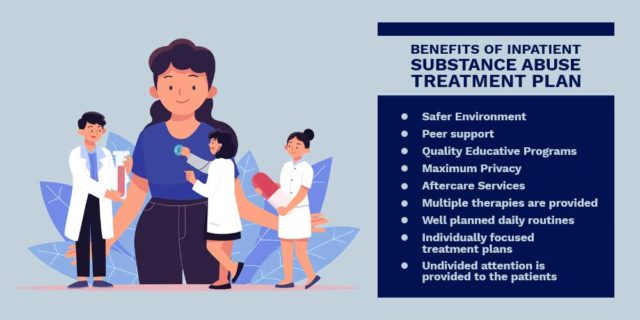Things about Narconon Africa
Table of ContentsRumored Buzz on Narconon AfricaNarconon Africa Can Be Fun For AnyoneHow Narconon Africa can Save You Time, Stress, and Money.The Single Strategy To Use For Narconon AfricaThe Facts About Narconon Africa UncoveredAbout Narconon AfricaThe Best Guide To Narconon Africa
In a series of papers with Manudeep Bhuller and Katrine V. Lken, we overcome these data challenges and the nonrandomness of jail time, providing new understandings right into exactly how incarceration influences recidivism, employment, children, and criminal networks - Substance abuse treatment. Number 1 Our work studies the impacts of incarceration in Norway, a setup with two vital advantagesWe can better link this details to various other member of the family, including children and siblings. Furthermore, we know on co-offending that allows us to draw up criminal networks for observed criminal offenses. Second, we can utilize the random job of criminal situations to judges who differ in their propensities to send out accuseds to jail.
But some courts send offenders to prison at a high price, while others are more lax. We gauge a court's stringency as the ordinary imprisonment price for all various other situations a court deals with, after regulating for court and year fixed impacts, which is the level of random task. This quasi-random project of judge stringency can be made use of as an instrument for incarceration, as it strongly forecasts the judge's decision in the present situation, however is uncorrelated with various other instance features both by layout and empirically.
How Narconon Africa can Save You Time, Stress, and Money.
Characteristics of prisoners, including demographics and crime categories, are broadly comparable in Norway and other nations, consisting of the United States, with the exemptions that the US homicide rate is a lot greater, and race plays a bigger role there as well. What stands out as different, especially compared to the United States, is the prison system.
Figure 2In Norway, the typical time spent in jail is a little over 6 months, which is comparable to most other Western European countries. This contrasts with typical United States jail time of virtually 3 years, which remains in big component the reason the USA is an outlier in its imprisonment rate contrasted with the remainder of the globe [Number 1]
Narconon Africa Can Be Fun For Everyone
This offers a lot even more separation in between minor and solidified wrongdoers than exists in the United States. There is no overcrowding in Norwegian jails and better individual security, with each detainee being assigned to their own cell and a greater inmate-to-staff proportion than in the USA (https://anotepad.com/notes/ccgb5fks). Jails in Norway additionally use well-funded education and learning, medicine therapy, psychological health and wellness, and task training programs
Our read more research study on the results of incarceration on the culprit, making use of the random task of courts as a tool, yields 3 vital findings. Initially, imprisonment discourages additionally criminal behavior. We discover that incarceration lowers the possibility that an individual will certainly reoffend within 5 years by 27 percentage factors and lowers the equivalent number of criminal charges per person by 10 fees.
Everything about Narconon Africa
We find sizable reductions in reoffending likelihoods and advancing billed criminal activities even after accuseds are released from prison. Our second result is that bias due to choice on unobservable private features, if neglected, brings about the wrong final thought that time spent behind bars is criminogenic. If we merely compare criminal accuseds imprisoned versus those not sentenced, we find favorable associations in between imprisonment and succeeding criminal activity.
This stands in contrast to our evaluation based upon the arbitrary project of courts, which discovers an opposite-signed outcome. Third, the decrease in crime is driven by individuals who were not functioning prior to incarceration. Among these people, imprisonment raises involvement in programs directed at enhancing employability and minimizing recidivism, and this inevitably elevates work and earnings while dissuading criminal actions.

Imprisonment triggers a 34 percent factor rise in engagement in work training programs for the previously nonemployed, and within five years their work price increases by 40 percentage factors. At the very same time, the probability of reoffending within 5 years is reduced by 46 portion factors, and there is a decrease of 22 in the ordinary variety of criminal fees.
Excitement About Narconon Africa

A probable explanation for the difference is that Norway's prison system varies substantially, both in regards to prison-term size and jail problems, from the United States jail system. While understanding the effects of incarceration on the transgressor is a crucial first step, capturing spillover impacts is additionally vital for examining criminal justice plan and making reliable jail systems.
How Narconon Africa can Save You Time, Stress, and Money.

Common the very least squares approximates expose that youngsters of incarcerated daddies are 1 portion factor most likely to be billed with a crime, loved one to a mean of 13 percent, and show no result on school qualities. Utilizing our judge stringency tool, we discover no analytical proof that a father's imprisonment impacts a child's very own crime or school grades, yet we are not able to dismiss modest-sized results.
The Greatest Guide To Narconon Africa
We define criminal teams based on network web links to prior criminal situations. Our evaluation returns three major searchings for. Initially, when a criminal network participant is put behind bars, their peers' probability of being charged with a future criminal offense decreases by 51 portion points over the following four years. Having an older sibling put behind bars reduces the likelihood his younger brother will be billed with a criminal offense by 32 percent points over the following four years.